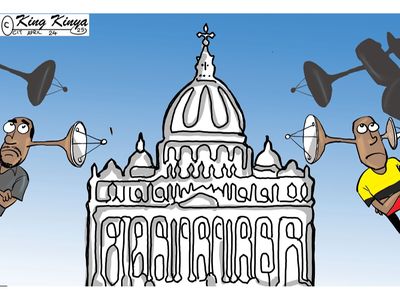The Food and Drugs Authority (FDA), has revealed that it handed over a case involving unregistered and unlicensed products, including serum, organic hemp powder, and CBD — being sold via Instagram to the Nima Police.
The FDA, suggested that the law enforcement body, failed to act on the matter thereafter.
This followed a complaint filed by Nana Yaw Amoah Amofa in January 2020, regarding the suspicious products advertised on social media.
According to the FDA, the matter was promptly investigated in accordance with its standard procedures.
This resulted in the arrest of the suspect, Florence Ama Dadzie, by officers from the Ghana Police Service stationed at the Nima Police Station. She was taken into custody pending further investigation and prosecution.
Interestingly, the FDA, did not follow up after filing the case with the police to ensure that the suspect was prosecuted and sanctioned in accordance with its laws. The suspect would later reappear in another related case.
The FDA’s explanation was issued in response to a news story published by The Herald on Monday, April 14, 2025, under the headline, “Whistleblower Alleges FDA and Police Cover-Up in Drug Case.”
The Authority, described Mr Amofa’s claims as misleading and inaccurate, insisting it acted appropriately on all complaints received.
In a statement signed by the Chief Executive Officer (CEO), Dr Delese A. A. Darko, the FDA, confirmed that Mr Amofa, submitted two complaints to its Head Office — the first on January 27, 2020 and the second on March 5, 2020.
In the March 2020 complaint, Mr Amofa, raised concerns about the Vaginne Feminine product associated with Florence Ama Dadzie. The FDA clarified that the product in question had already been duly registered and approved by the Authority. The complainant was informed of this outcome in a letter dated 16 March 2020.
Dr Darko, firmly rejected the accusation that the FDA, had engaged in a “cover-up”, stating: “The FDA has not and did not ‘cover up’ any drug case, as purported by your headline.”
The Authority, has called on the publishers of the April 14, report to correct what it described as “misrepresentations” and issue a formal rejoinder to set the public record straight.
Reaffirming its commitment to public health and safety, the FDA emphasised its adherence to due process and regulatory standards in all matters brought before it. The rejoinder is part of the FDA’s efforts to maintain public trust and reinforce its accountability in the face of serious allegations.
Mr Amofa, has accused both the FDA and the police of a cover-up and abuse of office, naming two officers of the Ghana Police Service in what appears to be a troubling case of whistleblower intimidation.
He claimed that his civic efforts to report a suspected narcotics peddler led to personal threats, harassment, and an alleged attempt to silence him through coercion and political influence.
In a detailed petition dated 3 February 2025, sent to the Operation Recover All Loot (ORAL) Team and made available to The Herald, Mr Amofa recounted that in January 2020, he discovered Florence Aba Dadzie actively advertising and selling banned substances — including Indian hemp and cannabidiol (CBD) — on social media.
He reported the matter to both the Food and Drugs Authority and the Drug Law Enforcement Unit of the Police CID, leading to Ms Dadzie’s arrest.
“Florence Aba Dadzie was arrested red-handed, and it was confirmed she had no licence or authorisation to engage in such activity,” Mr Amofa stated. However, he lamented that despite the apparent weight of the evidence, Ms Dadzie was released on bail and has yet to face prosecution.
The whistleblower believes he has since become the target of a revenge campaign after Ms Dadzie allegedly discovered that he was behind the report that led to her arrest.
Mr Amofa claims that her uncle, Mr Ransford Appiakorang, a police officer based at the Police Headquarters, used his influence within the service and former government connections to shield his niece from legal consequences and orchestrate a campaign of intimidation against him.
According to Mr Amofa, in February 2021, Mr Basiru Abdul-Rahaman summoned him to the Nima Police Station following a report filed by Ms Dadzie, alleging that he had threatened her — an allegation he insists was entirely fabricated.
He further described how, after giving his statement, he was compelled to return the following day. “When I arrived, Mr Rahaman told me he had instructions to take me to the Police Headquarters. He put me on the back of his personal motorbike — without a helmet — and drove me there himself,” he recounted. “This was not only unprofessional but a grave danger to my life.”
At the Police Headquarters, Mr Amofa was taken to Mr Appiakorang’s office, where he claims he was pressured into signing an undertaking not to contact Ms Dadzie, while paradoxically being instructed to apologise for reporting her.
Following that meeting, Mr Amofa alleges that Ms Dadzie began a campaign of harassment against him and his mother, backed by threats from her alleged allies. “Despite acting within the law under the Whistleblower Act (Act 720), I am the one facing threats, harassment, and fear for my safety,” he wrote.
In a further troubling twist, Mr Amofa revealed that the original investigator on the drug case, Mr Affram, had been replaced by Mr Rahaman, raising concerns about procedural irregularities and potential conflict of interest. “I question whether it is standard practice for officers not initially assigned to a case to later take over, especially in a situation riddled with such clear bias,” he said.
He has called on the authorities to assign a neutral public official to review the matter and conduct an impartial investigation. “I am traumatised and fearful for my life,” he said. “The person who reported a crime is being punished, while the person allegedly engaged in criminal activity is being protected.”
Mr Amofa also revealed that he has received threats from Ms Dadzie in the past, including warnings that she would “unleash thugs” on him. He has expressed readiness to provide evidence to support his claims and assist in any investigation.
The Ghana Police Service, has yet to comment publicly on the matter.
The post FDA shifts blame in illegal drugs cover-up case appeared first on The Herald ghana.


